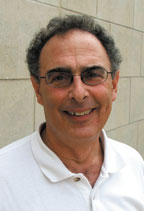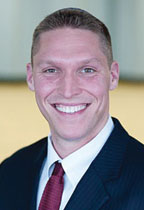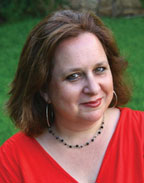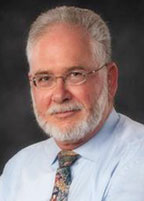 Religious pluralism is a hot topic in Israel right now, and Rabbi Mark Levin of Congregation Beth Torah believes it should be a hot topic here as well. In fact, he believes this is the most critical issue facing the Jewish people today.
Religious pluralism is a hot topic in Israel right now, and Rabbi Mark Levin of Congregation Beth Torah believes it should be a hot topic here as well. In fact, he believes this is the most critical issue facing the Jewish people today.
“I believe the future of the Jewish people depends on the State of Israel. The support of the North American Jewish community depends upon the feeling of North American Jewry that we are in fact included in the State of Israel. Under the current religious set up, where the ultra-Orthodox control most everything and the consequent exclusion, with the exception of the ultra Orthodox, from the religious decision-making process, North American Jewry is systematically being excluded from religious participation in the State of Israel and most Israeli Jews are also being systematically excluded,” Rabbi Levin said.
This issue is so important to Rabbi Levin that he organized a panel discussion on religious pluralism in Israel for the Rabbinical Association of Greater Kansas City set for Thursday, May 1. This dialogue will address the concerns and effects of religion and religious pluralism in Israeli domestic politics. Topics will include such things as to what extent is Israel a democracy, a Jewish state, or both? How religious freedom is protected in Israeli law and is Israel today marked by increasing religious pluralism?
 Panel participants include: Elana Sztokman, executive director of the Jewish Orthodox Feminist Movement; Rabbi Uri Regev, president and CEO of Hiddush — For Freedom of Religion and Equality in Israel; and Rabbi Shmuly Yanklowitz of Kehilath Israel Synagogue. Rabbi Levin will serve as moderator.
Panel participants include: Elana Sztokman, executive director of the Jewish Orthodox Feminist Movement; Rabbi Uri Regev, president and CEO of Hiddush — For Freedom of Religion and Equality in Israel; and Rabbi Shmuly Yanklowitz of Kehilath Israel Synagogue. Rabbi Levin will serve as moderator.
The evening will be structured in a way that each panelist will first express his or her personal view on religious pluralism in Israel. Following the three short presentations, questions from the audience will be presented to the panelists.
Religious pluralism really doesn’t exist in Israel right now. Currently the Orthodox have control over marriage, divorce, conversion and the issue that has received the most press lately — prayer at the Western Wall.
Last week it was reported that some progress has been made toward a compromise for prayer at the Wall, which would allow women to be able to pray there. Even with a compromise in the works, last week (April 11) five women were arrested by police for wearing prayer shawls at the Wall, which JTA reports “contravenes Israeli law requiring respect for ‘local custom’ there.”
This does not sit well with Rabbi Levin.
“The head of the Jewish Agency, Natan Sharansky, had to make a visit to the chief rabbi of the Wall, who gets to make all these decisions, to make sure that women would be able to say Kaddish at the Wall,” Rabbi Levin said. “To wit women cannot carry a tallit, not wear one, into the vicinity of the Western Wall without fear of being arrested.”
The Reform rabbi believes Jews worldwide are being systematically excluded from religious participation in the Jewish state, “which I assert with other well known people in Israel is a threat to the very security of the State of Israel and that American Jewry must be a part of this solution.”
 Reform and Conservative Jews are not the only ones concerned by the lack of religious pluralism in Israel.
Reform and Conservative Jews are not the only ones concerned by the lack of religious pluralism in Israel.
“As an Orthodox rabbi, I feel I must be proactive to be a part of a solution that brings all Jews closer to Judaism while honoring each individual’s dignity,” said Rabbi Yanklowitz. “Many of my dear Israeli Orthodox colleagues seem to have alienated major segments of the global Jewish community. I feel we must embrace values of inclusivity and honor in how we build up the Jewish state and pull Jews closer, not push them further away.”
Rabbi Levin said American Jews should make their voices heard regarding the importance of religious pluralism in Israel. He pointed out it’s been successfully done in the past when the Israeli government was trying to define the issue of who is a Jew about 20 years ago.
“North American Jewry has stood up as one in the ‘Who’s a Jew’ question and said to the Israeli government you cannot proceed in this direction. The new policy of exclusion was not implemented. North American Jewry must stand up as one and recognize the fact that the Western Wall is symbolic, that the participation of all Jews at the Western Wall is essential and that’s just part of the general exclusion,” Rabbi Levin said.
He also pointed out that 300,000 or more Jews cannot marry in Israel — including 200,000 people who came from the Soviet Union — because there is no such thing as civil marriage there.
 “Now the ultra-Orthodox rabbinate has become incredibly exclusionary about who they will accept as a Jew, reversing Orthodox conversions let alone the ceremonies or the conversions of other Jews. This current situation is not tenable and what they are doing is writing off from participation in Israel the vast majority of world Jewry. Eighty-eight percent of the Israeli public says that is not OK,” Rabbi Levin said.
“Now the ultra-Orthodox rabbinate has become incredibly exclusionary about who they will accept as a Jew, reversing Orthodox conversions let alone the ceremonies or the conversions of other Jews. This current situation is not tenable and what they are doing is writing off from participation in Israel the vast majority of world Jewry. Eighty-eight percent of the Israeli public says that is not OK,” Rabbi Levin said.
Rabbi Levin continued to stress just how important he believes this issue is for the survival of the Jewish people.
“Sometimes there is an issue that people do not recognize how critical it is until it’s too late. God forbid that a next generation of Jews gets excluded from Jewish life in Israel; they will abandon the Jewish state. In other words the state can’t say, ‘We are the Jewish state. You’re not Jewish. Support us.’ That’s what they are currently saying and that’s not a tenable position and it must be reversed. There must be a pluralistic Israel or the statement will continue to be, ‘We are the Jewish state. You are not Jewish. We need your support.’ ”
Panel discussion details
The Rabbinical Association of Greater Kansas City, in cooperation with area congregations, will host a panel discussion on “Religious Pluralism in Israel” at 7 p.m. Wednesday, May 1, at the Jewish Community Campus.
There is no charge and the community is invited to attend. For questions or further information, visit kcrabbis.org or contact Annette Fish, Rabbinical Administration administrator/program director at , 913-327-4622.


